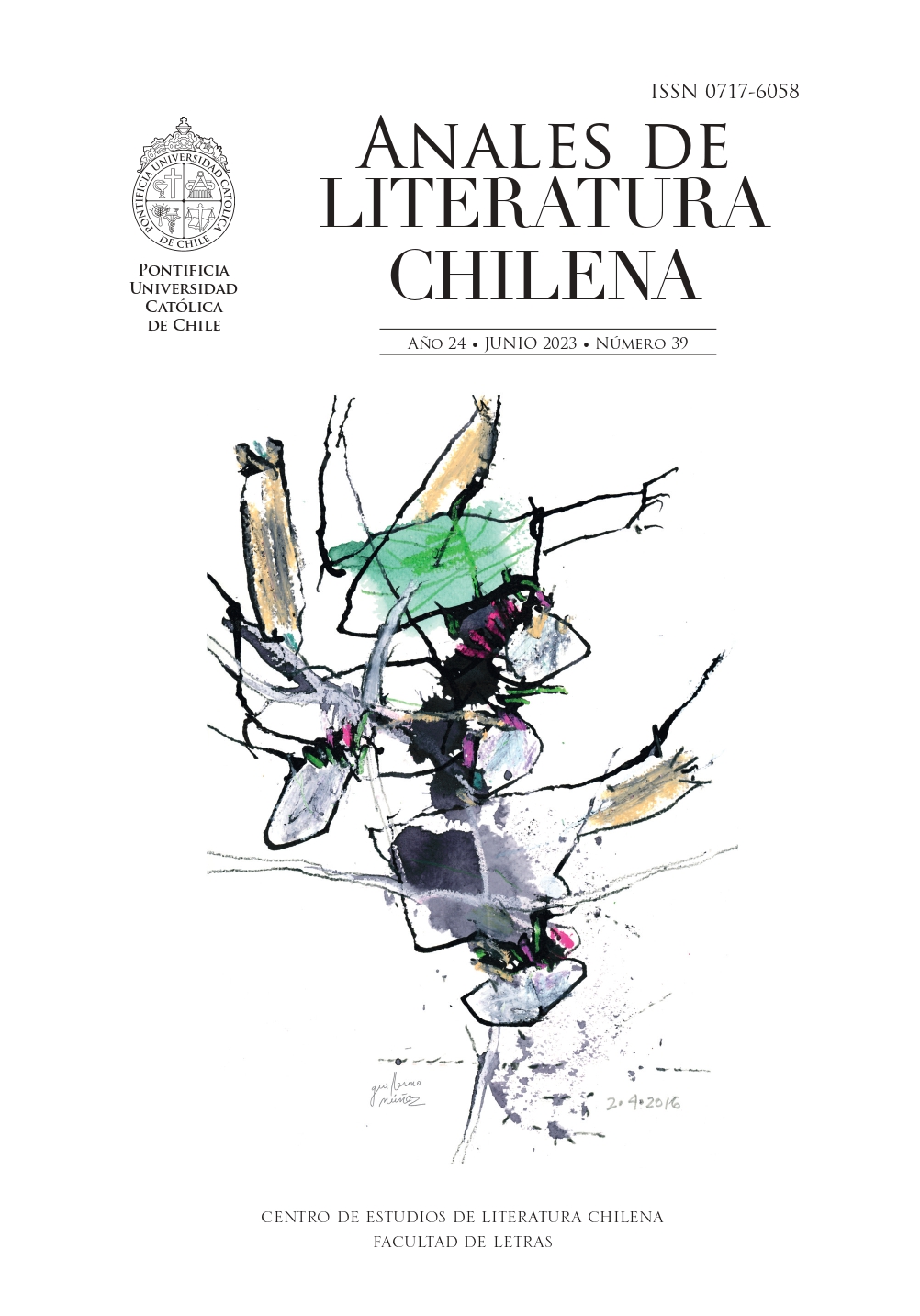THE FRAGILITY OF THE BODY, CHILE AND THE SUPPORT OF WRITING: "MEDITACIONES FÍSICAS PARA UN HOMBRE QUE SE FUE" (1987) BY ELVIRA HERNÁNDEZ
DOI:
https://doi.org/10.7764/ANALESLITCHI.39.06Keywords:
Elvira Hernández, Chilean poetry, Meditaciones físicas para un hombre que se fueAbstract
The short collection of poems Meditaciones físicas para un hombre que se fue (1987), by the Chilean writer
Elvira Hernández (Lebu, 1951), was originally published in a format intended for postal correspondence, the
carta tarjeta. This article investigates the implications of using this means of communication as a medium
for poetic writing: brevity, fragmentation, economy, employment in periods of war or during travel, a
relationship with humanism, confirmation of an absence, dialogic intention, among others. Additionally, it
proposes that each of the four texts of the book of poems refers to an effect of the dictatorship on the body
of the enunciating subject, their absent partner as well as the bodies of the inhabitants of Chile. In other
words: abuse, dispossession, hunger, and disappearance. This perception of bodies as fragile and vulnerable
is evoked from the fragility of the support of writing. The images of impairment are presented in the texts
through phonic, syntactic and semantic rhetorical resources, which are examined in depth. Likewise, it
reflects on the links between the collection of poems and previous works: Meditaciones metafísicas, by
René Descartes, and the tradition of meditations in classical antiquity.
Downloads
Downloads
Published
How to Cite
Issue
Section
License

This work is licensed under a Creative Commons Attribution-NoDerivatives 4.0 International License.


